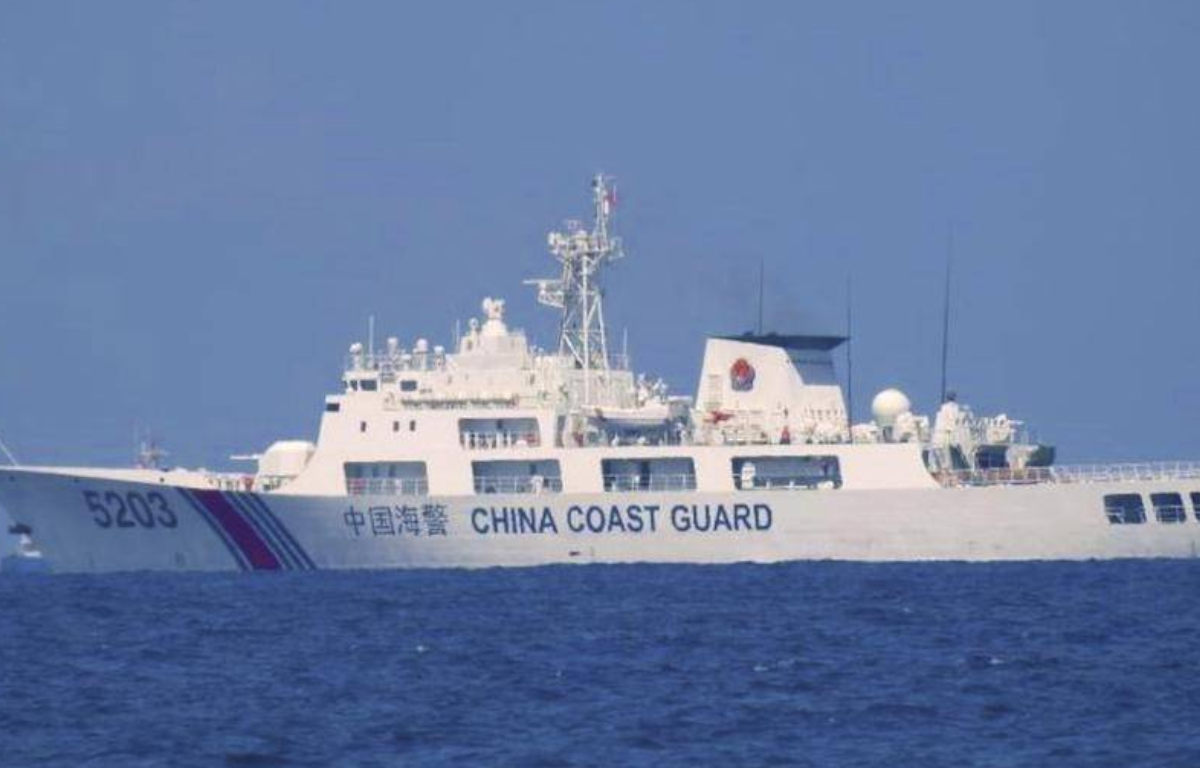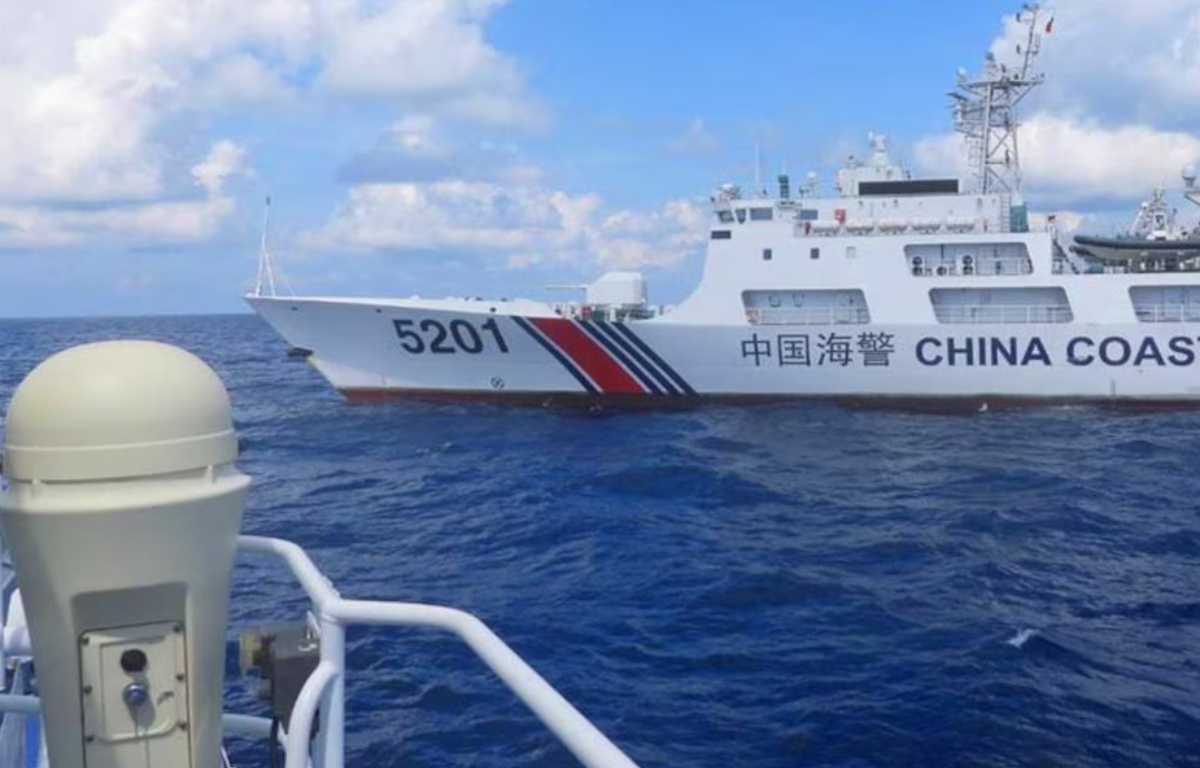
This incident, which occurred on [specific date if known], highlights the ongoing disputes over territorial claims in this strategically significant region.
The Scarborough Shoal, located about 120 nautical miles west of the Philippines’ Luzon Island, is claimed by both China and the Philippines. It has long been a flashpoint in the broader South China Sea conflict, which involves multiple nations with competing territorial and maritime claims.
According to reports, the Philippine vessels were conducting routine patrols and resupply missions within what the Philippines considers its exclusive economic zone (EEZ) when they encountered the CCG. The Chinese vessels used high-powered water cannons to drive the Philippine boats away from the area, a tactic that has been employed in previous encounters. This aggressive action has drawn sharp criticism from the Philippine government, which has condemned the use of force against its vessels.
Philippine Foreign Affairs Secretary [insert name] issued a statement expressing “grave concern and strong protest” over the incident. The statement called for China to respect international law, particularly the United Nations Convention on the Law of the Sea (UNCLOS), which the Philippines argues supports its claims over the shoal.
China, on the other hand, maintains that the Scarborough Shoal, known as Huangyan Island in China, is an inherent part of its territory. Chinese authorities have defended the actions of the CCG, stating that they were enforcing Chinese sovereignty and protecting their territorial waters from unauthorized entry by foreign vessels.
This latest incident adds to a series of maritime confrontations between China and the Philippines, as well as other Southeast Asian nations. The South China Sea is a vital waterway for global trade, and it is believed to hold significant oil and gas reserves, making the region a focal point for both economic and strategic interests.
The international community has also expressed concern over the rising tensions in the South China Sea. The United States, a key ally of the Philippines, has reaffirmed its commitment to the defense of its allies and partners in the region. The U.S. State Department condemned the use of water cannons and urged China to refrain from provocative actions that could destabilize the region.
The Association of Southeast Asian Nations (ASEAN) has called for dialogue and peaceful resolution of disputes in accordance with international law. ASEAN member states are keen to avoid escalation and ensure that the South China Sea remains a region of peace and stability.
Moving forward, it remains crucial for both China and the Philippines to engage in diplomatic dialogue to manage and resolve their differences. The use of aggressive tactics such as water cannon attacks only serves to heighten tensions and increase the risk of miscalculation and conflict. Regional cooperation and adherence to international legal frameworks are essential to maintaining peace and stability in the South China Sea.
As the world watches these developments, the need for a comprehensive and peaceful resolution to the South China Sea disputes becomes increasingly urgent. Ensuring the freedom of navigation, upholding international law, and fostering cooperative relationships among claimant states are vital steps towards achieving long-term peace and stability in this critical region.










Share this: